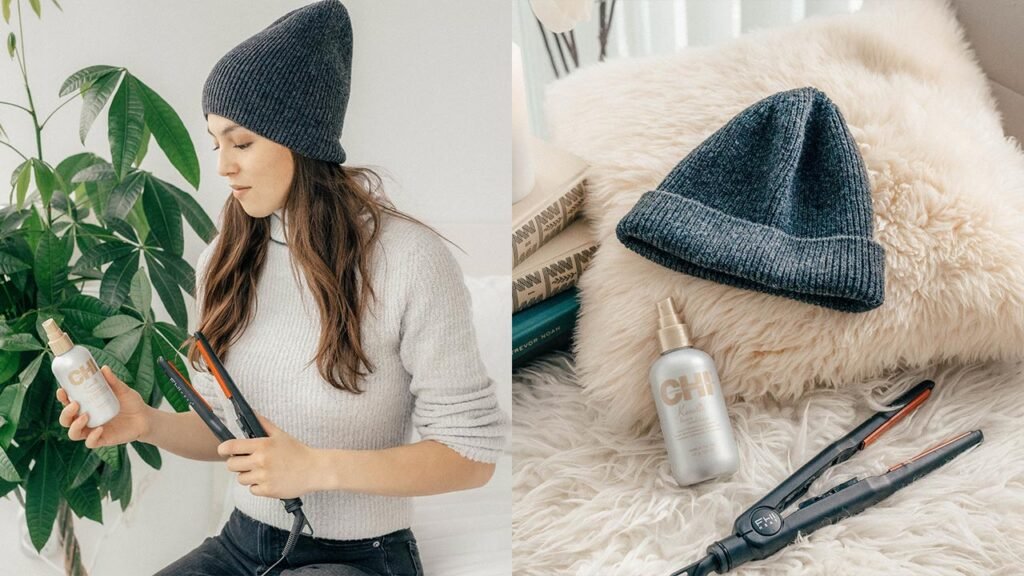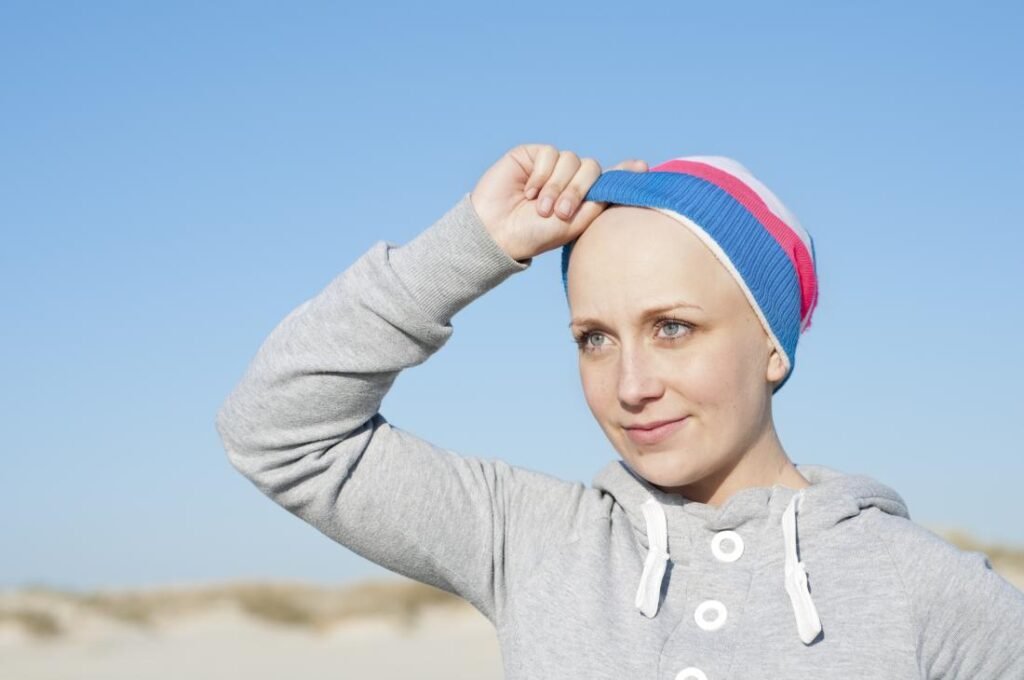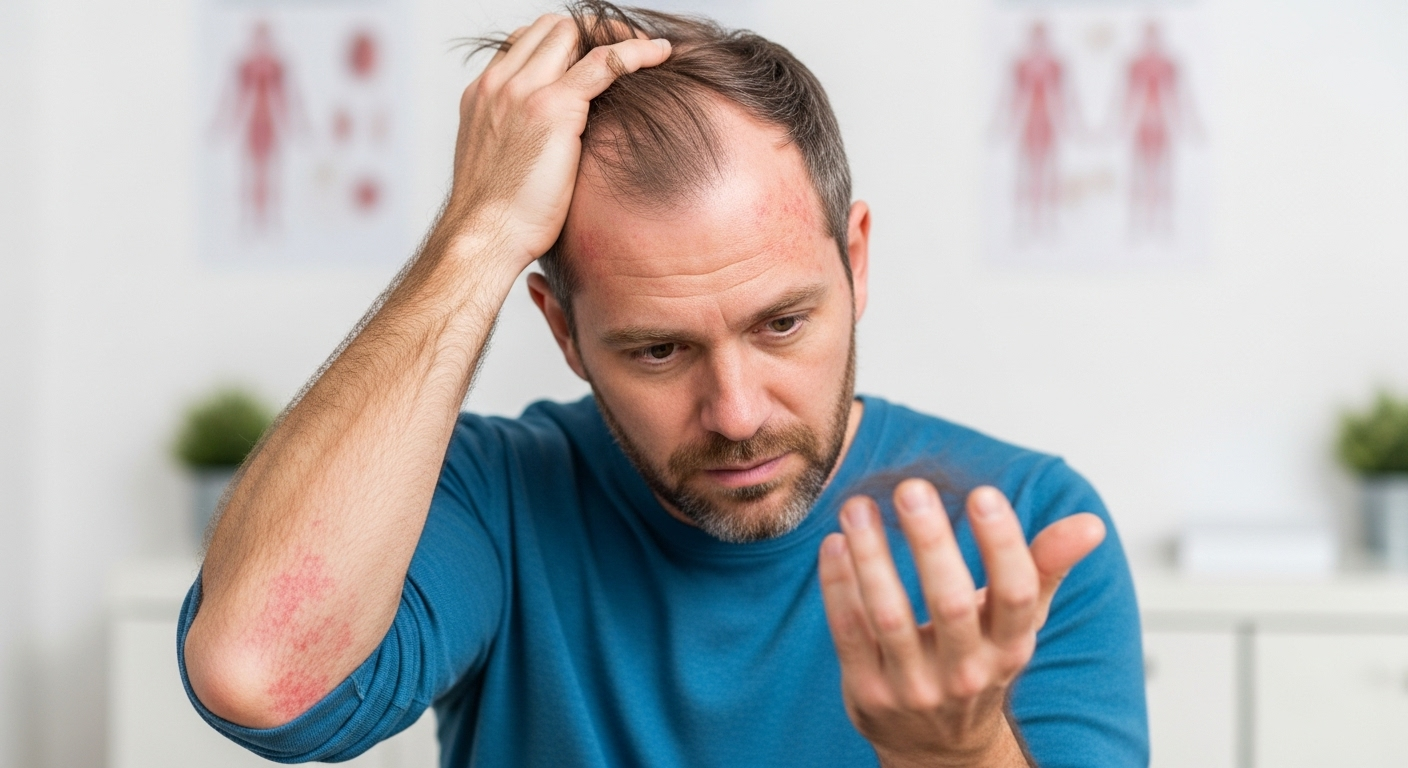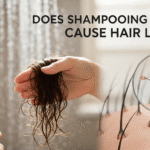Many people worry that Does Wearing a Beanie Cause Hair Loss, especially if they wear one regularly. The truth, however, is not as straightforward as it may seem. This article explores whether wearing a beanie can cause hair loss, offering expert advice on how to protect your hair while enjoying your favorite headwear. By the …
Many people worry that Does Wearing a Beanie Cause Hair Loss, especially if they wear one regularly. The truth, however, is not as straightforward as it may seem. This article explores whether wearing a beanie can cause hair loss, offering expert advice on how to protect your hair while enjoying your favorite headwear.
By the end of this post, you’ll understand how to safely wear a beanie without damaging your hair and scalp. Let’s dive into the facts and debunk common myths surrounding hats and hair health.

The Link Between Wearing Hats and Hair Loss
Does Wearing a Beanie Cause Hair Loss?
It’s a common question: does wearing a beanie directly cause hair loss? The short answer is no, not directly. Simply wearing a beanie does not lead to hair loss. However, certain factors related to how you wear your beanie and the materials it’s made from can indirectly impact your hair health.
When worn properly, a beanie can protect your hair from the cold and prevent sun damage. But if worn too tightly or made from non-breathable materials, it can cause issues that may lead to hair breakage or other scalp conditions.
How Wearing Tight or Ill-Fitting Beanies Could Contribute to Hair Damage
One of the main concerns with wearing beanies is how they fit. If a beanie is too tight, it can place pressure on the hair follicles, leading to friction and hair breakage. Over time, this repeated tension can contribute to a condition known as traction alopecia, a form of hair loss caused by prolonged tension or pulling on the hair.
Additionally, a tight beanie may restrict airflow to your scalp, causing sweat and moisture buildup. This can clog hair follicles and contribute to scalp issues, such as dandruff or fungal infections, which can interfere with healthy hair growth.
Factors Contributing to Hair Loss While Wearing a Beanie

Traction Alopecia: What You Need to Know
Traction alopecia occurs when hair is consistently pulled in a specific direction, putting stress on the hair follicles. While this condition is commonly associated with tight hairstyles like ponytails and braids, wearing a tight beanie can have a similar effect. If your beanie is too tight, it can cause continuous tension on your hair, leading to breakage and thinning.
Prevention Tips:
- Choose a looser-fitting beanie that doesn’t apply pressure to your hair follicles.
- Avoid wearing the same style or tight hat for prolonged periods. Allow your scalp to breathe and your hair to recover from any pressure.
- Alternate between wearing a beanie and other styles to prevent hair stress.
The Impact of Sweat and Buildup
Another factor that can affect your hair health when wearing a beanie is sweat. When you wear a beanie, especially in warmer weather or during physical activities, your scalp can become sweaty. Sweat can mix with oils and dirt on your scalp, leading to buildup that clogs your hair follicles. This can cause irritation, dandruff, and other scalp conditions that may lead to thinning or weaker hair over time.
Advice:
- Opt for beanies made from breathable fabrics like cotton or wool to allow air circulation and reduce excessive sweating.
- Wash your beanie regularly to remove sweat and buildup, ensuring it remains clean and free from bacteria or fungi that could harm your scalp.
How to Wear a Beanie Without Damaging Your Hair

Choosing the Right Beanie for Your Hair Health
Choosing the right beanie can make all the difference in how it impacts your hair health. A poorly made or tight-fitting beanie can cause friction, tension, and sweat buildup that negatively affect your hair. However, when worn correctly, a beanie can help protect your hair from the elements without causing harm.
Fabric Choices: Beanies made from natural, breathable fabrics like cotton, wool, or cashmere allow your scalp to breathe, preventing excessive sweating and promoting healthy hair. Avoid beanies made from synthetic materials, as these can trap moisture and heat, leading to scalp irritation.
Proper Fit: The key to wearing a beanie without damaging your hair is to make sure it fits comfortably. A beanie that’s too tight will put pressure on your hair follicles and could lead to traction alopecia. Opt for a looser-fitting beanie that gently rests on your head without causing tension or friction.
How Often Should You Wear a Beanie?
Moderation is key. While there’s no need to avoid wearing your beanie altogether, it’s important to give your hair and scalp breaks from wearing headwear regularly. Prolonged pressure and friction from wearing a tight beanie daily can weaken the hair shaft and contribute to hair breakage.
Alternating Headwear: Consider alternating between different types of hats or even going without a head covering for some time to allow your scalp to breathe. This reduces the chances of moisture buildup, pressure on the hair follicles, and tension-related hair loss.
Addressing Common Myths About Beanies and Hair Loss

Is Wearing a Beanie the Leading Cause of Hair Loss?
Wearing a beanie is not the leading cause of hair loss. Hair loss is typically caused by a combination of genetic factors, hormonal changes, nutritional deficiencies, and other lifestyle factors. While wearing a tight beanie may contribute to hair damage or breakage, it is unlikely to be the primary cause of hair loss for most people.
Can Beanies Make Hair Grow Faster?
This is another common myth surrounding headwear. While wearing a beanie may keep your hair warm and protected from the cold, it does not promote faster hair growth. Hair growth is largely determined by genetics, nutrition, and overall scalp health. If your hair is damaged due to improper hat-wearing habits, it may hinder hair growth by weakening the follicles.
Case Studies
Real-Life Experiences
Many individuals have experienced hair thinning or breakage due to tight hats or improper headwear choices. One case study involves a patient who experienced noticeable thinning around the hairline due to wearing a tight beanie for several hours each day. Once the patient switched to a looser-fitting beanie and took breaks between wear, their hair health improved, and breakage reduced significantly.
FAQs
Does Wearing a Beanie Every Day Cause Hair Loss?
No, wearing a beanie every day does not directly cause hair loss. However, wearing a tight beanie too frequently can contribute to hair damage and breakage, particularly if it causes tension on the hair follicles or promotes sweat buildup on the scalp.
What Type of Beanie is Best for Your Hair?
The best beanie for your hair is one that fits comfortably and is made from breathable fabrics like cotton or wool. Avoid synthetic materials, as these can trap heat and moisture, causing scalp irritation and hair damage.
Can Wearing a Beanie Cause Thinning Hair?
Wearing a beanie may contribute to thinning hair if it’s too tight or made from materials that cause friction or excessive sweating. However, thinning hair is more commonly caused by factors like genetics, hormones, or nutritional deficiencies.
Conclusion
Wearing a beanie does not directly cause hair loss, but it can contribute to hair damage and breakage if not worn properly. By choosing the right beanie, ensuring a comfortable fit, and taking steps to protect your scalp from sweat and friction, you can continue enjoying your favorite headwear without compromising your hair health.
If you’re concerned about hair thinning or scalp health, schedule a consultation with Dr. Uzma Irfan, an ISHRS-certified surgeon in Islamabad today. Let us help you find the right solutions to keep your hair healthy and strong while wearing the accessories you love.






